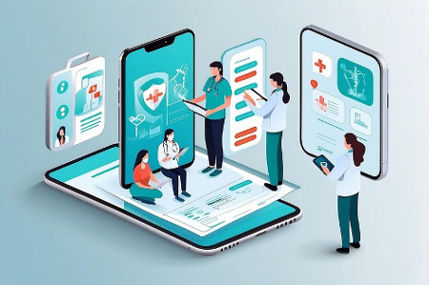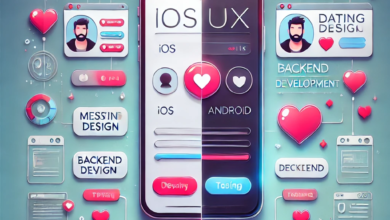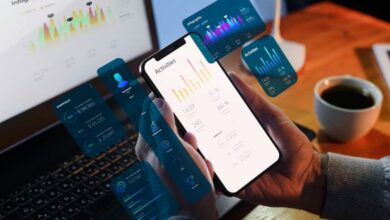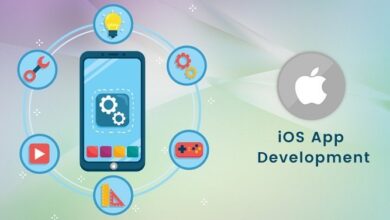Mobile App Development for Healthcare: Transforming the Industry

In recent years, mobile app development for healthcare has revolutionized how patients and healthcare professionals interact, streamlining processes and improving accessibility to medical services. The fusion of technology and healthcare has opened up new opportunities to deliver better patient care, reduce costs, and enhance operational efficiency within healthcare organizations. As mobile technology continues to evolve, so too does its impact on the healthcare industry.
The Rise of Mobile Health (mHealth)
Mobile health, or mHealth, refers to the use of mobile devices, apps, and other wireless technologies to support medical and public health practices. With the global adoption of smartphones and mobile apps, mHealth has rapidly gained popularity. From remote patient monitoring to telemedicine, mobile app development for healthcare is providing innovative solutions that improve patient outcomes and offer a more personalized approach to healthcare.
Benefits of Mobile Apps in Healthcare
1. Improved Patient Engagement Mobile apps empower patients by giving them access to their health data, appointment schedules, and medication reminders right at their fingertips. This increased engagement helps patients take a more active role in managing their health, improving adherence to treatment plans and fostering better communication between patients and healthcare providers.
2. Remote Monitoring and Telemedicine With the advent of telemedicine apps, patients can now consult with doctors from the comfort of their homes. Remote patient monitoring apps also allow healthcare professionals to track vital signs, chronic conditions, and other health metrics in real-time, providing timely interventions and reducing the need for in-person visits.
3. Streamlined Administrative Processes For healthcare providers, mobile apps offer an efficient way to manage patient records, appointment scheduling, billing, and even medical inventory. This reduces the administrative burden, allowing healthcare staff to focus more on patient care and less on paperwork.
Key Features of Mobile Healthcare Apps
To truly enhance the healthcare experience, mobile apps must offer a variety of features tailored to both patients and healthcare providers. Some of the key features include:
1. User-Friendly Interface A mobile healthcare app should be easy to navigate for users of all ages, particularly the elderly or those less familiar with technology. Simple, intuitive designs encourage more widespread adoption.
2. Secure Data Storage and HIPAA Compliance Data security is paramount when developing healthcare apps. These apps must comply with regulatory standards such as the Health Insurance Portability and Accountability Act (HIPAA) to ensure that patient information remains confidential and secure.
3. Real-Time Communication A crucial feature in mobile app development for healthcare is real-time communication between patients and healthcare providers. Whether through chat, video calls, or secure messaging, seamless communication improves the quality of care and ensures that patients receive timely medical advice.
4. Integration with Wearable Devices Many mobile healthcare apps integrate with wearable devices, such as smartwatches or fitness trackers, to collect real-time data on physical activity, heart rate, sleep patterns, and more. This data can be used to provide personalized healthcare recommendations or alert healthcare providers to potential health risks.
The Role of AI and Machine Learning in Healthcare Apps
Artificial Intelligence (AI) and Machine Learning (ML) are playing increasingly important roles in mobile app development for healthcare. AI-powered apps can analyze vast amounts of data to offer personalized treatment plans, predict health outcomes, and even detect potential diseases at an early stage. Machine learning algorithms also help improve diagnosis accuracy and optimize patient care by identifying trends and patterns in health data.
Challenges in Mobile App Development for Healthcare
While the benefits of healthcare apps are undeniable, there are several challenges that developers must navigate:
1. Data Privacy Concerns Given the sensitive nature of healthcare data, ensuring robust security measures is essential. Developers must prioritize encryption, secure data storage, and adherence to privacy regulations.
2. User Adoption and Accessibility Some patients, especially the elderly or those in remote areas, may face difficulties in accessing or using mobile healthcare apps. Developers need to create apps that are both accessible and user-friendly for diverse populations.
3. Integration with Existing Systems For healthcare apps to be truly effective, they must integrate seamlessly with existing Electronic Health Record (EHR) systems, hospital databases, and other healthcare technologies. This can be a complex process, requiring careful planning and execution.
The Future of Mobile App Development for Healthcare
The future of mobile app development for healthcare looks incredibly promising. With advancements in technology such as 5G, augmented reality (AR), and virtual reality (VR), healthcare apps will soon offer even more immersive and real-time patient care experiences. Additionally, the continued integration of AI will make healthcare more predictive and personalized, transforming the way medical services are delivered globally.
Conclusion
Mobile app development for healthcare is a growing field with enormous potential to improve patient outcomes, streamline healthcare processes, and enhance the overall patient experience. By leveraging cutting-edge technology, healthcare providers can deliver more personalized and efficient care while empowering patients to take charge of their health. As the industry continues to evolve, mobile healthcare apps will remain at the forefront of innovation, driving a more connected and accessible healthcare system for all.





